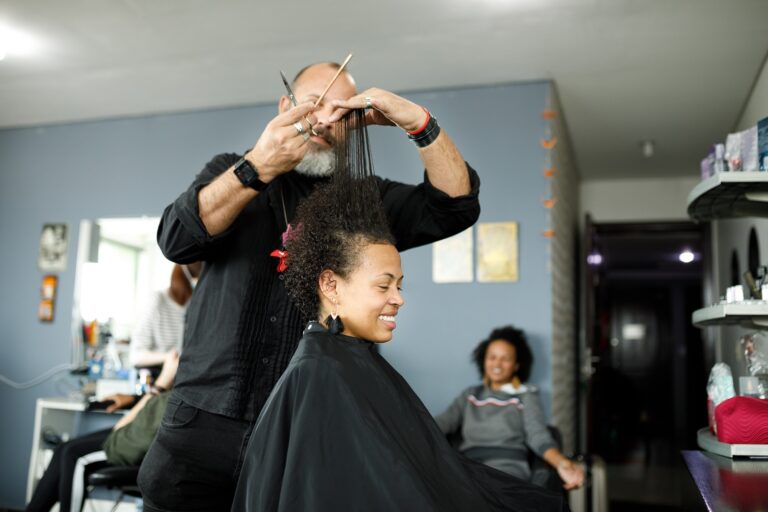If California’s bill passes, it would allow the state’s cosmetology schools to “train more stylists to serve the diverse beauty needs of people across California,” said the bill’s sponsor, state Assemblyman Akila Weber, signaling a broader trend toward national regulatory efforts calling for more comprehensive haircare education standards.
With over 200 institutions, the impact of this legislation is poised to reshape training and inclusion standards for future aesthetic professionals.
About the Bill
The bill, supported by the Textured Education Collective (TEC), would address a long-standing gap in cosmetology education: insufficient education about textured hair. Textured hair, which includes coily, curly, and wavy hair, is prevalent among 65% of Americans, yet many cosmetology education curricula have historically failed to address the unique needs of textured hair.
This development is significant for both beauty professionals and consumers: stylists will now have the training they need to work with all hair types, expanding their potential clientele, and consumers with textured hair will have access to a wider range of skilled professionals, making beauty services more inclusive and equitable.
In a media statement, David Greenberg, CEO and president of North America for L’Oreal USA, praised the new law, saying, “Inclusivity in the beauty industry is non-negotiable,” adding, “All professionals entering the beauty industry must have the knowledge and skills to work with all hair types, and all consumers must have access to trained professionals who can address their individual needs.”
Greenberg also highlighted the role that the Texture Education Collective (TEC), which includes leaders of brands such as Aveda, DevaCurl and Neal Corporation, played in pushing for the bill.
The importance of this bill goes beyond California, as it sets a precedent for other states to follow. “California is proud to be the state with nearly 200 cosmetology schools, more than any other state in the nation,” State Assemblywoman Dr. Akila Weber said in a statement to reporters.
“The passage of this groundbreaking textured hair education law will enable these schools to train more stylists to serve the diverse beauty needs of people across California,” said Dr. Weber. Dr. Weber also called for other states to enact similar legislation to ensure all beauty professionals have access to standardized textured hair education.
National trend toward comprehensive hair care education
California’s move is in line with broader national efforts: Louisiana will implement a similar mandate in 2021, followed by New York, Minnesota and Connecticut, which have passed textbook education bills in 2023 and 2024, respectively.
The Texture Education Collective (TEC) is pushing for this standardization nationwide, advocating for consistent training in textured hair care in every state. “This victory accelerates momentum for the Texture Education Collective and spurs our work to advocate for similar legislation across the country and promote consistent standards and excellence in cosmetology education across the U.S.,” said Myra Reddy, director of government relations for the Professional Beauty Association, in a media release.
For manufacturers and suppliers of cosmetic and personal care products, this legislation signals a significant shift in market demand. As salons and beauty professionals expand their services to accommodate more diverse hair types, product developers and suppliers must align with this inclusivity by offering products designed for textured hair. This creates an opportunity for brands to innovate and market products that address the specific needs of curly, coily and wavy hair.
This new law will also increase safety and professionalism in the beauty industry. With standardized education, beauty professionals will be better prepared to safely use products and techniques on textured hair, ensuring both customer satisfaction and health. The ripple effects of this decision are expected to reach far beyond California’s borders, leading the beauty industry toward a future where the diversity of hair types is fully represented and respected.

